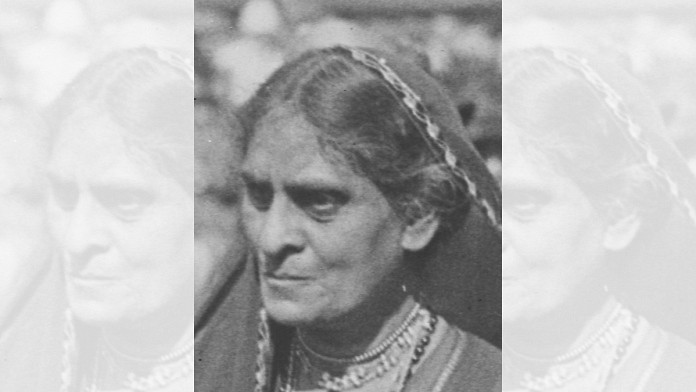A royal elephant was deprived of his banana grove — and he hired a woman lawyer to represent him in court before the maharaja. Travelling by a palanquin through tiger-inhabited jungles in a silk saree, India’s first woman lawyer, Cornelia Sorabji reached the court in Panchmahal, Gujarat. But even before she could speak, the whimsical king, perched on a swing, declared that she had won the case—on the grounds that his dog liked her.
Breaking glass ceilings
Born on 15 November 1866 in Nasik to a prosperous Parsi family following Zoroastrian-Christian customs, Sorabji was the youngest among her six sisters. She spent her initial years being homeschooled in Belgaum, Karnataka, where her family lived.
Sorabji’s father, Karsedji, was a Christian missionary and a strong advocate of women’s education. He encouraged his daughters to enrol at the University of Bombay. Her mother, Francina Ford, set up many girls’ schools in Pune and was a pioneer in providing education to women.
The first female student at the University of Bombay, Cornelia Sorabji completed a five-year course in English literature in a year—and topped her class too. But despite this achievement, she was denied a scholarship to study at Oxford University in London because she was a ‘woman’.
But all wasn’t lost. Many women collectively helped raise money for Sorabji — including Florence Nightingale. In 1889, she became the first Indian woman to study at a British university — Somerville College — completing her course in law.
At Oxford, she established close relationships with scholars such as Max Muller and Monier Monier-Williams. While in 1892 she passed the Bachelor of Civil Laws (BCL) examination, Oxford did not grant her the degree as women were not allowed to register as advocates. She returned to India and began her search for a job. This was no easy feat either, and her struggles continued.
Also read: Aurobindo inspired Bengali patriot Khudiram Bose to shake British Raj foundations
Legal career and social reform
Despite being unable to get a degree, Sorabji fought for women’s rights and was involved in social work with ‘purdahnashins’ — women who observed purdah and were segregated from society and unable to access education. While Sorabji was allowed to enter pleas for these women, she could not represent them in court as women were banned from practising law in India.
This did not deter Sorabji — she took the L.L.B. examination at the University of Bombay and soon after, the Allahabad High Court’s Pleader’s Examination in 1899. While she excelled in both examinations, she was still not considered a barrister and hence went on to work as the government’s legal advisor on purdahnashins’ issues and rights. Ultimately, she won for them the right to education and training to become a nurse and help other such women in the community.
In 1904, she was appointed as the lady assistant to Bengal’s Court of Wards, and by 1907, she became the voice of the ignored and suppressed — working in numerous provinces such as Bengal, Bihar, Orissa, and Assam to represent women and other minority communities in provincial courts. She was also actively linked with the Bengal branch of the National Council for Women as well as the Federation of University Women and Bengal League of Social Service.
Her zeal to help minority communities impacted numerous lives, helping approximately 600 women and children fight their legal battles in her roughly two-decade career. But many did not take her work seriously. She was also a great advocate for the abolition of child marriage and the Sati.
It was only in 1920 that Sorabji finally received her degree, and she was formally recognised as a barrister in Britain in 1922 after London’s Bar Council allowed women to practise law. In 1924, she returned to Calcutta (now Kolkata) and was enrolled as a barrister in the high court after the provision prohibiting women from practising law was dissolved.
A strong social reformer, Sorabji had contradictory views on British rule in India and even opposed M.K. Gandhi’s civil disobedience movement. She went on to practise law for another five years and eventually gave up in 1929 and devoted her time entirely to social work.
Legacy
In 1909, Sorabji was awarded the Kaisar-i-Hind Medal for Public Service in her fight for women’s reforms and for her unwavering opposition to regressive Hindu customs. A keen writer, she also wrote three books, including her autobiography titled India Calling: The Memories of Cornelia Sorabji and India Recalled. She also wrote a book about her experiences and struggles as a woman attempting to practise law in Between The Twilights.
Sorabji permanently moved back to London in 1931 and died at Northumberland House in Manor House on 6 July 1954.
In 2012, prominent lawyers in the UK unveiled a bronze bust of Sorabji to acknowledge the first woman to don the lawyer’s gown in the country.
In 2016, on Sorabji’s 150th birth anniversary, Somerville College celebrated her achievements by launching a scholarship in her name — Cornelia Sorabji Scholarship in Law — for outstanding Indian graduate students in law.
Today, Cornelia Sorabji’s portrait hangs on a wall in the prestigious National Portrait Gallery in London.
(Edited by Humra Laeeq)



